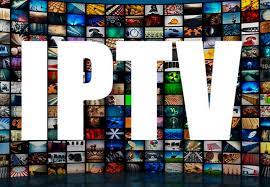IPTV or Internet Protocol Television, is a service that delivers TV content via the internet instead of traditional terrestrial, satellite, as well as cable. As broadband internet access becomes more common and speedier, iptv subscription is growing in popularity as an alternative to traditional TV services.
What is IPTV?
IPTV delivers live television channels, on-demand videos as well as recorded programming via the internet. Unlike traditional broadcasting methods, IPTV allows users to stream content live, choose what they want to watch, and at what time they want to watch it, allowing the flexibility of viewing.
How Does IPTV Work?
IPTV operates by transferring video content via an internet or broadband connection. The process involves several stages:
Services for Content Delivery (IPTV) record live broadcasts and on-demand videos and encode them in IP packets. These packets are then transmitted over the internet.
Streaming Protocols: To ensure a smooth delivery, IPTV services use streaming protocols such as RTSP (Real-Time streaming Protocol) and HTTP (Hypertext Transfer Protocol). These protocols control the flow of data making sure that viewers can view content without significant buffering or delays.
Middleware: Middleware is the software that controls the interactions between the end-user and the IPTV service. It manages tasks such as the selection of channels, billing and preferences of the user.
Set-Top Box (STB): A set-top box is a device that decodes IP packets and converts them into a format that your television can display. Certain IPTV services are accessible directly via computers, smart TVs, or mobile devices, without the requirement for a set-top box.
Types of IPTV Services
There are three major types of IPTV services:
Live TV: The allows viewers to stream TV channels live, similar to traditional cable or satellite TV.
Videos on Demand (VoD) VoD enables users to watch movies or TV shows, as well as other videos at their convenience, rather than following a broadcast schedule.
Time-Shifted Media: This program lets viewers watch previously broadcast content, such as catch-up TV in which you can view programs you missed earlier.
Advantages of IPTV
Flexibility: IPTV allows you to watch content on various devices, including tablets, smartphones, TVs and even computers.
Customization: Users are able to create personalized viewing experiences with streaming content and catch-up services.
Cost-Effective: IPTV subscriptions are often cheaper than traditional cable or satellite, especially when they are combined with internet services.
Considerations Before Subscribing
Before subscribing to any iptv subscription (iptv abonnement), ensure that you have a reliable and fast internet connection. Additionally, research the reputation of the provider, their available channels, as well as compatibility with your devices to avoid any issues regarding the quality of service or legal issues.


